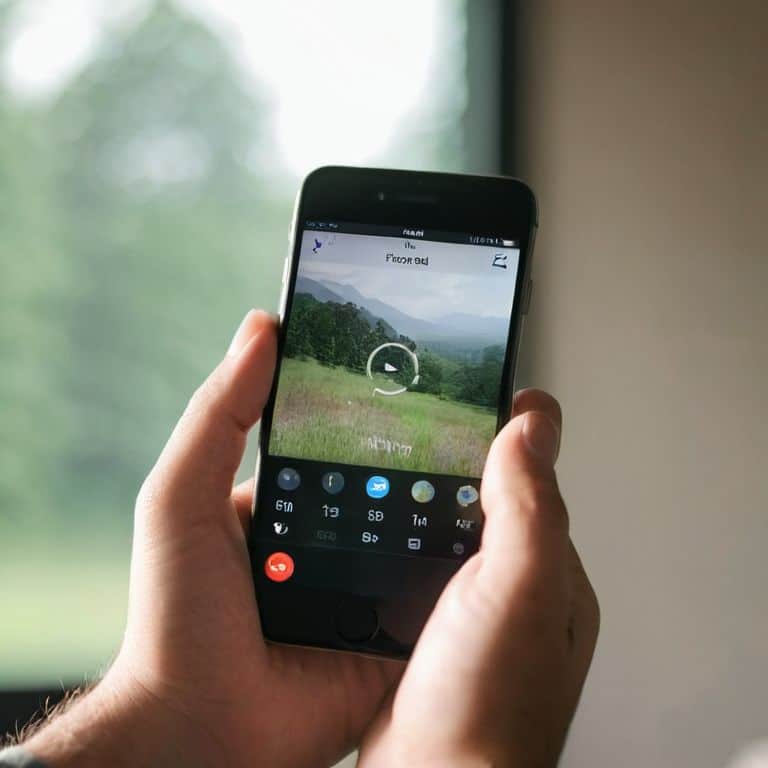I still remember the day I realized that dealing with online negativity was not just a minor annoyance, but a major energy drain that was affecting my mental health and overall well-being. As someone who’s spent years building an online presence, I’ve learned that how to deal with online negativity is not just about developing a thick skin, but about creating a sustainable strategy for maintaining your emotional balance in the face of criticism and hate. I’ve been there, done that, and got the t-shirt – and I’m here to tell you that there’s a better way to navigate the wild west of online interactions.
In this article, I’ll share my personal story of burnout and recovery, and provide you with practical tips and actionable advice on how to shield your energy from online critics and thrive in the digital world. You’ll learn how to recognize the signs of emotional exhaustion, set healthy boundaries, and cultivate a supportive community that will help you rise above the noise. My goal is to empower you with the tools and strategies you need to build a resilient online presence, without sacrificing your mental health or well-being. By the end of this article, you’ll have a clear understanding of how to deal with online negativity in a way that’s authentic, sustainable, and aligned with your values.
Table of Contents
- Guide Overview: What You'll Need
- Step-by-Step Instructions
- Thriving Despite Online Negativity
- 5 Essential Tips to Shield Your Energy from Online Negativity
- Key Takeaways for a Healthier Online Presence
- Finding Inner Peace in a Chaotic Digital World
- Embracing a Positive Digital Presence
- Frequently Asked Questions
Guide Overview: What You'll Need

Total Time: 1 hour 15 minutes
Estimated Cost: Free – $0
Difficulty Level: Intermediate
Tools Required
- Self-reflection Journal (digital or physical)
- Time Management App (for scheduling breaks)
- Web Browser (with ad blocker and privacy settings)
Supplies & Materials
- Knowledge of Online Community Guidelines
- Emotional Support Network (friends, family, or therapist)
Step-by-Step Instructions
- 1. First, set boundaries around your online interactions by scheduling specific times to check and respond to comments on your social media platforms. This will help you avoid mindless scrolling and reduce the likelihood of stumbling upon negative or hurtful comments. Start by allocating 30 minutes in the morning and 30 minutes in the evening to check your accounts, and stick to these times as much as possible.
- 2. Next, create a self-care ritual to help you cope with online negativity. This could be as simple as taking a few deep breaths, going for a short walk, or practicing a quick _restorative yoga_ pose. Having a calming ritual in place will help you respond to negative comments in a more thoughtful and intentional way, rather than react impulsively.
- 3. When encountering online negativity, practice empathy by trying to understand where the other person is coming from. Ask yourself if there’s any truth to their comment, or if they’re simply trying to provoke a reaction. Remember that people often lash out online due to their own personal struggles or frustrations, and it’s not always about you.
- 4. Develop a pre-approved response template for dealing with common types of negative comments, such as criticism or personal attacks. Having a few thoughtful and professional responses at the ready will save you time and energy, and help you maintain a consistent tone across your online platforms.
- 5. To minimize the impact of online negativity on your mental health, establish a support network of trusted friends, family, or fellow online creators. Share your concerns and feelings with them, and ask for their advice or support when needed. Having a strong support system in place will help you feel less isolated and more empowered to handle online criticism.
- 6. Consider implementing a “no engagement” policy with trolls or individuals who consistently post hurtful or abusive comments. This means not responding to their comments or messages, and instead focusing on engaging with your positive and supportive community. Remember that you can’t control everyone’s behavior online, but you can control how you respond to it.
- 7. Finally, schedule regular digital detoxes to give yourself time to rest and recharge away from the online world. This could be as simple as taking a weekend off from social media, or planning a longer digital detox during a vacation or staycation. By taking breaks from the online world, you’ll be better equipped to handle online negativity when you return, and maintain a healthier relationship with technology overall.
Thriving Despite Online Negativity

As we navigate the complex world of online interactions, it’s essential to focus on building online resilience. This means developing a mindset that can withstand the inevitable criticisms and negative comments that come with sharing our work and ideas online. By prioritizing self-care and taking breaks from social media, we can reduce our stress levels and maintain a healthy perspective on online interactions.
Managing social media criticism is also crucial for our well-being. When faced with negative comments, it’s vital to take a step back and assess the situation before responding. Strategies for online self-care, such as setting boundaries and limiting our engagement with toxic individuals, can help us maintain a positive online presence. By being mindful of our online interactions and taking care of ourselves, we can create a more supportive and uplifting community.
To further support our online well-being, we can look into creating a positive online community. This can be achieved by connecting with like-minded individuals, sharing supportive content, and engaging in constructive conversations. By doing so, we can build a network of people who uplift and inspire us, helping us to thrive in the digital world.
Building Resilience to Social Media Criticism
To build resilience, I recommend practicing self-compassion and reframing criticism as an opportunity for growth. Notice how you respond to negative comments – do you take them personally or can you detach and see them as a reflection of the commenter’s own struggles? By cultivating a sense of curiosity and empathy, you can begin to see criticism as a chance to learn and improve, rather than a personal attack.
I also suggest setting boundaries around your social media use, such as limiting your scrolling time or taking regular breaks from platforms. This can help you maintain a sense of control and reduce your exposure to potentially toxic or draining interactions. By prioritizing your own emotional well-being and taking proactive steps to manage your online presence, you can develop the resilience you need to thrive in the face of social media criticism.
Strategies for Online Self Care and Support
To shield your energy, I recommend scheduling regular digital detoxes and prioritizing offline activities that bring you joy. This could be as simple as taking a silent hike or practicing restorative yoga. By doing so, you’ll create space for self-reflection and recharge. I also suggest color-coding non-negotiable rest time in your calendar, treating it as a vital part of your self-care routine.
By implementing these strategies, you’ll be better equipped to handle online criticism and focus on nurturing your mental wellbeing. Remember, taking care of yourself is not a luxury, but a necessity for maintaining a healthy online presence.
5 Essential Tips to Shield Your Energy from Online Negativity
- Set boundaries by limiting your social media use to specific times of the day and taking regular digital detoxes
- Practice self-compassion by reminding yourself that online criticism often reflects the critic’s own struggles and biases
- Cultivate a support network of positive, like-minded individuals who can offer encouragement and constructive feedback
- Develop a growth mindset by viewing online criticism as an opportunity to learn and improve, rather than as a personal attack
- Prioritize offline self-care activities, such as restorative yoga or spending time in nature, to help you stay grounded and resilient in the face of online negativity
Key Takeaways for a Healthier Online Presence
Prioritize self-care and schedule non-negotiable rest time to maintain your energy and resilience in the face of online negativity
Implement boundaries and strategies for online self-care, such as taking regular breaks from social media and engaging in activities that bring you joy and calm
Focus on building a support network, both online and offline, to help you navigate challenging situations and cultivate a positive, uplifting community that fosters growth and well-being
Finding Inner Peace in a Chaotic Digital World
When online negativity knocks on your digital door, remember that your worth isn’t defined by likes, comments, or critics – it’s rooted in the gentle kindness you offer yourself in the midst of chaos.
Gabriela Rossi
Embracing a Positive Digital Presence

As we conclude our journey on how to deal with online negativity, let’s reflect on the key takeaways: building resilience to social media criticism, implementing strategies for online self-care and support, and prioritizing our mental well-being. By acknowledging the potential pitfalls of online interactions and taking proactive steps to protect ourselves, we can effectively navigate the digital world with confidence and poise. Remember, it’s essential to maintain a healthy balance between our online and offline lives, ensuring that our digital presence enhances our overall well-being rather than detracting from it.
As you move forward, I encourage you to reclaim your digital space and make it a source of inspiration, connection, and growth. By doing so, you’ll not only thrive despite online negativity but also become a beacon of positivity, inspiring others to do the same. Keep in mind that it’s a continuous process, and it’s okay to take things one step at a time. With patience, self-care, and a willingness to learn, you can create a digital presence that truly reflects your values and passions, and cultivates a sense of community and belonging.
Frequently Asked Questions
How can I separate my self-worth from the opinions of online strangers and maintain a positive self-image?
To separate your self-worth from online opinions, remember that strangers’ comments often reflect their own struggles, not your worth. Practice self-compassion by acknowledging your emotions, then gently remind yourself that their opinions don’t define you. Focus on your values, strengths, and accomplishments to cultivate a positive self-image that’s not swayed by external validation.
What are some effective ways to set boundaries with online critics without feeling like I'm being defensive or aggressive?
To set boundaries with online critics, I recommend using “gray rock” responses – neutral, unemotional replies that de-escalate tension. You can also use website settings to limit interactions or block toxic users. Remember, prioritizing your energy is not defensive, it’s essential.
Can you provide examples of how to reframe negative online interactions as opportunities for growth and learning, rather than letting them drain my energy?
Let’s flip the script on negative online interactions. Instead of taking them personally, try viewing them as chances to practice empathy, set boundaries, or refine your message. Ask yourself: What can I learn from this criticism? How can I use it to improve my craft or connect with my audience on a deeper level?
